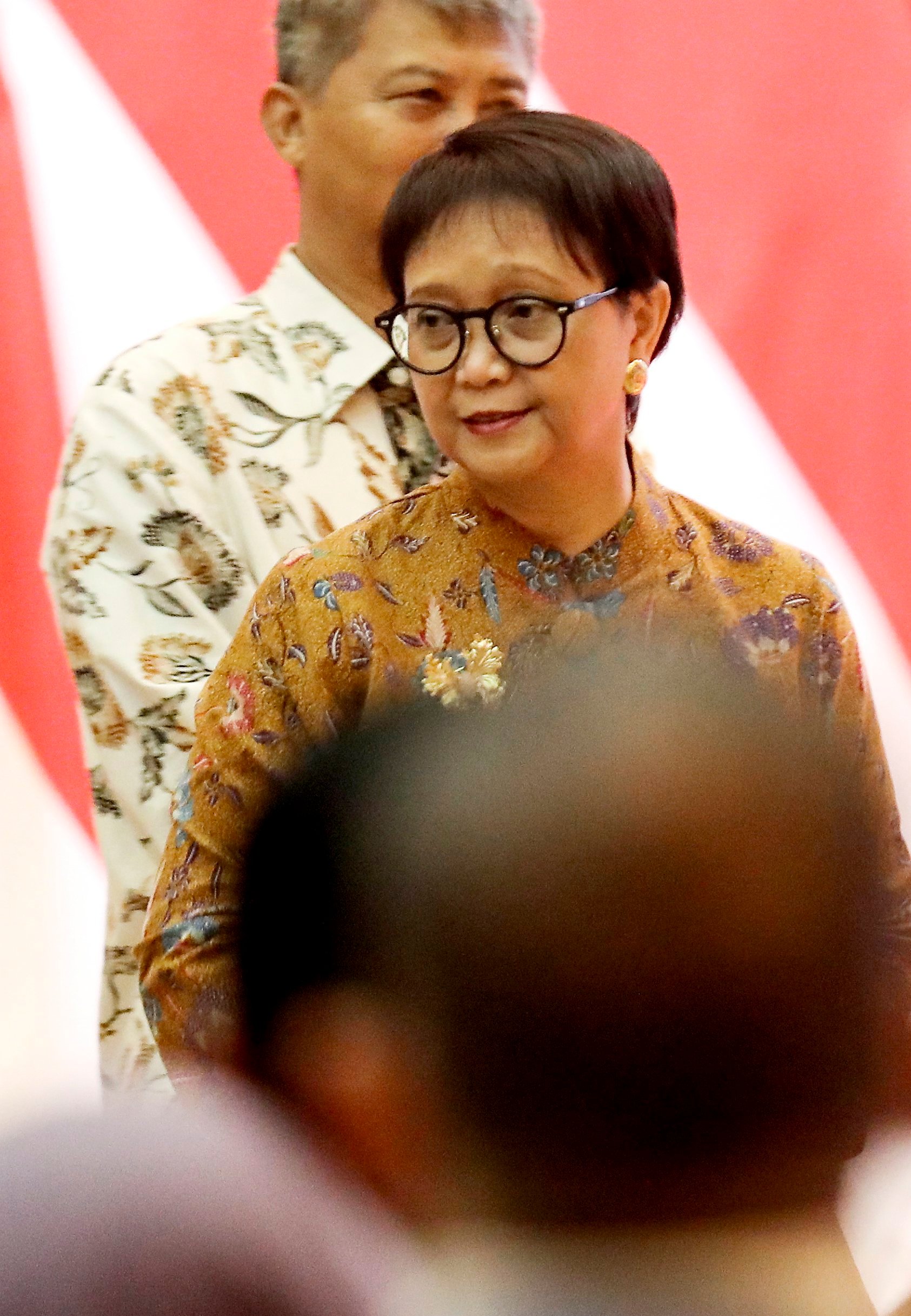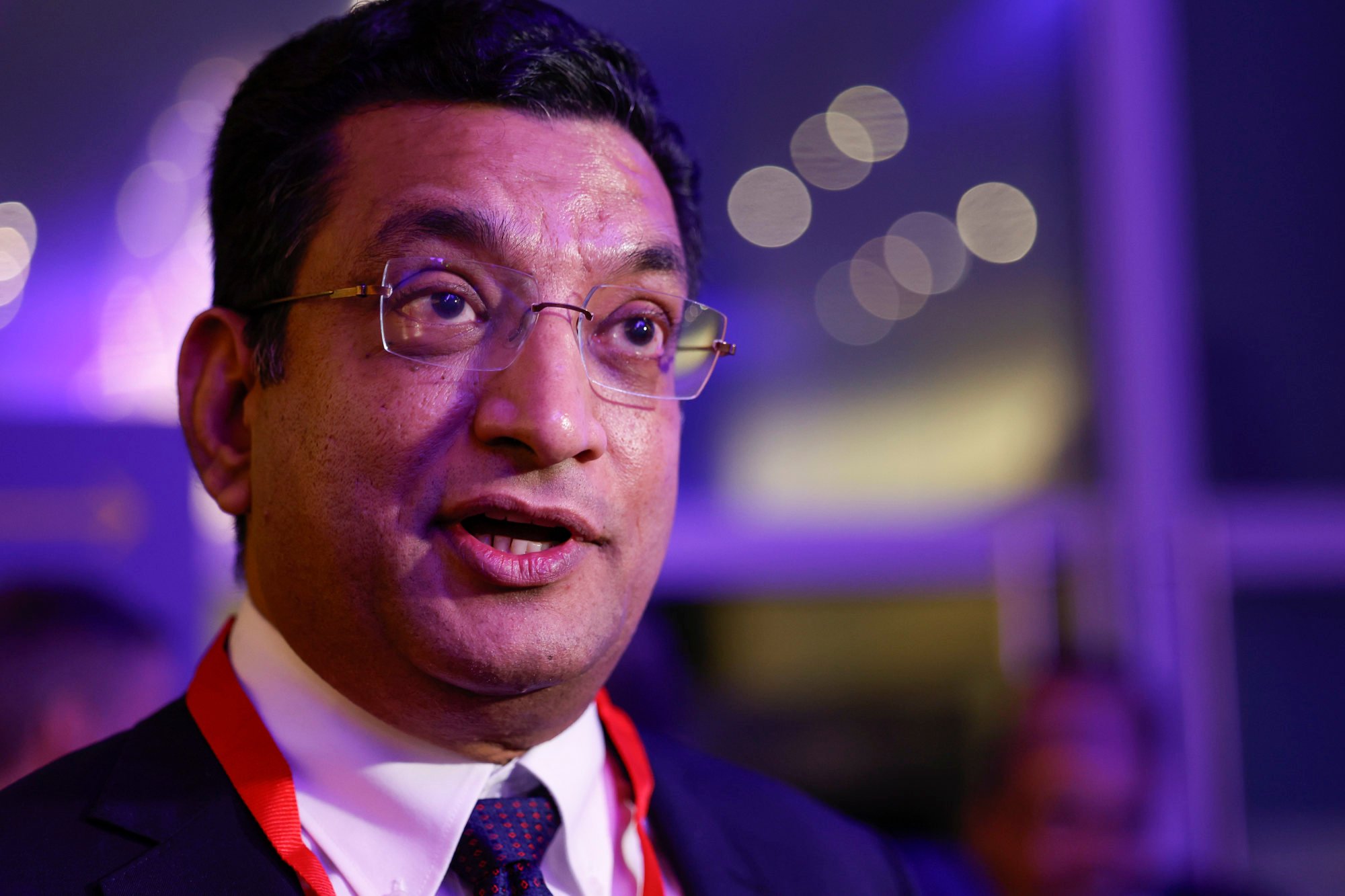EU told ‘double standards’ for Ukraine and Gaza hurt relations with Indo-Pacific
“I appeal to all of you to listen to your heart and do the right thing, stop the atrocities in Gaza, in Palestine,” she said, adding that “consistency with values and actions reflect sincerity of moral high ground … it shows who we actually are”.

Later, responding to questions from the South China Morning Post, Sri Lankan Foreign Minister Ali Sabry echoed Marsudi’s accusations.
“We represent the sentiment of the global south, that there’s double standards when it comes to the Middle East. The conflict needs to be looked at on a merit-based order. There can’t be double standards for what is happening in Ukraine and Middle East,” Sabry said.
The minister added that in all his interactions in Europe, “particularly with younger politicians … most of them feel the credibility of the Western world is at stake unless you treat all of them equally”.
The EU has been unable to come to a united position on the war in Gaza, launched following a terrorist attack by Hamas on Israel on October 7. The Israeli bombardment has killed more than 27,000 people in Gaza, the territory’s authorities said on Thursday.
Our position in the conflict in Gaza could certainly jeopardise our relations with many people in the world
A growing number of EU member states are calling for an immediate and lasting ceasefire, but others remain steadfast in defending Israel’s right to retaliate and to eliminate Hamas.
“It’s true, every time we talk with our partners, the issue of how we perceive the situations in Gaza and Ukraine appears,” the EU’s top diplomat Josep Borrell told the Post on the sidelines of the forum.
“I told European leaders yesterday that we have to pay close attention to that, because our position in the conflict in Gaza could certainly jeopardise our relations with many people in the world.”

It is viewed as a forum for the EU to build closer ties with partners in the region, and to discuss matters of mutual importance. But the summit has also served to underline their differences.
Speaking to reporters at the event, the Luxembourg foreign minister, Xavier Bettel, said he was “ashamed” of the EU’s response to the war in Gaza.
“I remember being as a prime minister discussing for hours if it’s a ‘ceasefire’ or ‘ceasefires’, if it’s a ‘humanitarian ceasefire’, if it’s ‘sanitary ceasefire’, this is why I’m ashamed. I’ve been to to Palestine and to Israel a few weeks ago, and Israelis should understand that the support is shrinking all the time,” Bettel said.
The event took place amid a turbulent backdrop in Brussels. A day earlier, farmers blocked the roads with tractors in protest against EU environmental red tape, lighting fires and toppling statues in front of the European Parliament.
EU fails to secure Southeast Asian backing over Ukraine war
EU fails to secure Southeast Asian backing over Ukraine war
At the same time, parts of the city were locked down as political leaders thrashed out a deal to find €50 billion (US$54 billion) in additional EU support for Ukraine, delaying several visiting delegations in getting to Brussels.
EU foreign ministers were set to dine with their Southeast Asian counterparts on Friday night. A joint statement by the two groups was published on Friday evening, with language on the Middle East diluted significantly from an earlier draft seen by the Post, which contained Asean’s preferred text.
“We agreed to condemn all attacks against civilians and we noted the call of some of us for a durable ceasefire. We called for rapid, safe and unimpeded humanitarian access to all those in need, including through increased capacity at border crossings and through a dedicated maritime route,” the statement read.
Despite the scheduling, only 20 of the EU’s 27 foreign ministers showed up for the Indo-Pacific forum; France and Germany, the bloc’s most powerful members, sent only lower-level representation.
Borrell said he had apologised to guests who had travelled from afar, but added that the “political agenda is complicated”.

